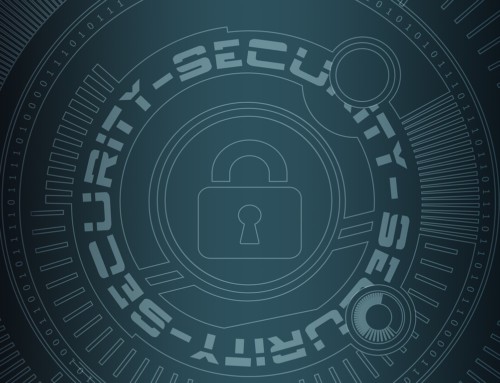Risks to Internet privacy
There are many ways your Privacy Online can be violated, but we will start from the beginning. There, where your Internet connection starts - your Internet Service Provider.
Like you probably already know, Internet Providers give us access to the Internet network. First we signup for some Internet Plan and then they provide us with connection credentials.
When we login to our Internet Access Account, the Internet Provider logs basic information about our connection.
What you need to know about Internet Providers and your Personal Data?
Internet Providers log basic information connected to your account like:
- Your Internet IP address
- Date and time when you login or logout from your account
- Router MAC address
- How much data you have downloaded or uploaded
These are called non-Personally Identifying Information (PII) or non-PII.
PII refer to any information that can be used to identify an individual.
Internet Providers can also keep information about your Traffic, like which URLs you have visited or where you are surfing. This data is PII.
If you are person that cares about your Personal Information and your Privacy, first you need to read carefully your Internet Provider’s Privacy Policy.
Privacy Tip: Use VPN to encrypt your communications
Search Engines
Search Engines collect lot of personal data like, what we search on Internet, but many of them have a great more services and you need an Account.
If you are logged into your account while you search, then Search Engines can keep far more Private Data that you want them to. It’s what you agree upon when you create your account and accept their Terms of Service. In this case they know everything about you: what you search for, what websites you visit, where you are, what ads you’ve clicked.
Privacy Tip: Use secure Search Engines like: DuckDuckGo, MetaGer, Ixquick etc.
Cookies
If you are like me, you probably like Cookies very much. But, these are not real cookies. These are HTTP Cookies, that your Browser keeps into your computer.
Cookies are generally Global Variables in Programming languages. Web applications need cookies to store application settings, even after you close the Browser. This way it’ll know your app settings when you start the application next time.
Marketers and marketing software, find this useful to track Website Visitors and create Visitor’s Profile. This information is non-PII information, but if you care about your Privacy, it’s good to know that someone tracks your visits.
Today, after many years of Internet, many people are aware of these cookies and Browsers have way to delete the stored cookies. So, people delete cookies on a regular basis.
Many Websites have Cookie Policy Statement, that is shown when you visit the website and you have to agree upon it.
Privacy Tip: If you want to be safe, first read the Website Cookie Policy and how that Website deals with the Cookies and your data.
Social Media
Facebook, Twitter, Pinterest, Instagram, Snapchat etc., they all have a lot of information about you, your Geographical data and behavioral data connected to your interests.
Also, they all have options to setup your account how you want to deal with your Personal Data and Privacy. You can restrict who you want to see your Posts, who can comment on your timeline, who can be friend with you.
However, you can not change the way the Social Media Platforms deal with your data. Since, most of them are free to use, they make money on creating user’s profiles and exchanging those profiles with advertisers.
Subscriptions and E-commerce Websites
Today, there are many online services that require your Personal Info when signing up for their Service. They collect lot of Personal data, so you need to read carefully their Privacy Policy.
Also, they collect your credit card information, which are very sensitive financial information.
These websites need to have the latest security techniques on their websites like SSL encryption.
Privacy Tip: Make sure the websites, which services you use, have the latest security techniques implemented, like SSL encryption.
We all use Email in our everyday communication. If someone intercepts our emails and they are not encrypted, they can read the emails. While communicating over email, we send very sensitive information and we don’t want someone to read our emails.
Email is one to one (or many) communication, so only the sender and the recipient(s) should be able to read the message. But, many governments have National Security Agencies that can read all your Email communications, if they want.
Mainstream email services allow themselves to scan your emails for keywords (not to say read your emails), so they can create a profile of you and sell that data to advertisers. So, what you do by using free email services, is let them use you and your data as a product.
Also, hackers enjoy intercepting sensitive data and grabbing it, so that they can sell it on the Dark Web, or maybe use it for hurting the person or the company whose data they have. So, if your email communication is not encrypted, your data is not safe out there.
Many people think that if they use VPN their email communication is protected, but what happens on the Intranet? Even if your data is encrypted while it travels through the VPN tunnel, you don’t know what happens on the Intranet. Your communication may be intercepted on that side, by you don’t know who. You don’t know where that network is, whose governments is in charge of it, or who other has access to it.
Email Privacy Tip: So, even if you use VPN, the best way to secure your Email Communication is to use Encrypted Email Service like the one Secure Swiss Data offers.





Leave A Comment